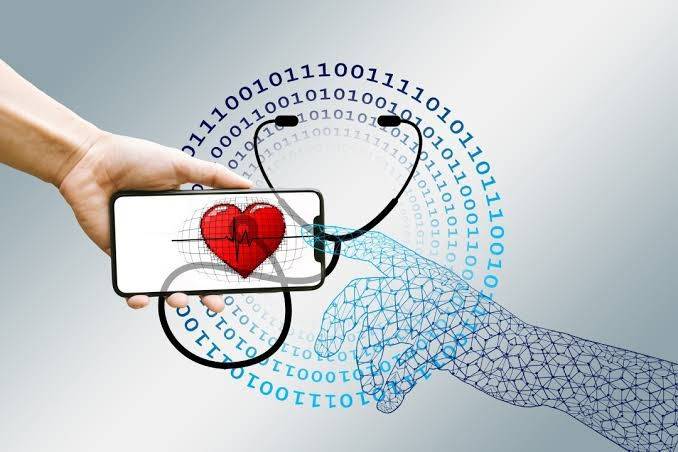As a medical student, your biggest goal might be to graduate and start your career as soon as possible. This goal seems like an island after a long voyage, and your journey represents the struggles you went through to accomplish your goal. Once you complete your degree, it may seem that you are done and dusted with the learning process and are now ready to utilize your knowledge and help people. But when you land your first job, only then do you realize that the learning process will most likely never come to an end!
One of the most significant realities of working in healthcare is that continuous learning is an innate part of your career. Everything presents itself as something unique that builds upon the foundation of your existing knowledge. Hence, it is safe to say that you will always remain a student in a healthcare job. You will have to enhance your skills and expertise over time to provide people with quality care. The reasons why learning never stops in healthcare are:
- New healthcare policies are created frequently
Healthcare service policies are going under renewals and updates to accommodate all social-demographic variables. Making policies is a messy business when policymakers are politically motivated. The economic conditions of a country play an essential role in this process as well. So when healthcare policies change, healthcare practitioners have to adapt accordingly. They have to learn about the environment and the social changes to provide improved services to patients. How do public insurance plans work? How to spread awareness about government-sponsored community health programs. These are essential questions healthcare practitioners need to have answers to so that they can distribute equal care opportunities to everyone.
- Learning is essential for career growth
No one wants to take up a job and put a full stop to their career. Healthcare jobs provide tremendous opportunities for professional and personal development. There are several opportunities for individuals to acquire further qualifications and climb vertically or divest into non-traditional healthcare practices. Many nursing bridge programs have been introduced for pursuing the career forward. For instance, nurses can study online doctorate programs or study a terminal degree in nursing to broaden their knowledge base and work scope.
- Innovation in technology
Technological changes cause worldwide revolutions that impact every industry. Likewise, healthcare professionals have e to keep up with technological advances in their field. Learning to use new software and information management systems does not happen overnight. The process requires training. The learning curve can often be steep. It is essential to climb as crucial decisions rely on the correct usage of tech and information in healthcare.
- New research
Research never stops, and newer research means that more mysteries of the universe unfold. Every new study published will either change what you know or build upon it. Healthcare service providers have to keep close tabs on research publications within their niche to gain new knowledge. Research unveils new medical procedures to enhance the quality of patient care. It helps to identify new threats in the environment and how to mitigate their consequences. It allows professionals to understand human health and disease in ways they hadn’t learned during their educational period.
- Every patient is a unique learning experience
The human body is a remarkable thing. It evolves and adapts with time, and it is almost impossible to understand it in totality. As healthcare workers deal with patients daily, they encounter newer conditions and challenges. Coping with these challenges requires applying any knowledge that one may have acquired in the past. In a way, the patient brings something new to the table. Healthcare practitioners learn to adapt their procedures based on the uniqueness of each medical complexity.
- Communication is an ever-evolving skill
Becoming a healthcare service provider means that you have to excel at communication. But communication is like an art that you can only master if you practice continuously. You have to communicate with a patient and coworkers. You have to communicate with the patient’s family members. You have to delegate tasks and give information. You cannot communicate effectively if you do not grasp the intricacies and subtleties of verbal and physical communication. It is a skill and process that requires continuous learning.
Conclusion
The healthcare industry is rewarding as you get to help the patients in need of medical attention. It is also rewarding because you evolve as a person with each passing day. New technology, research, and patents add more value to your knowledge base and experiences. Continuous improvement is a natural phenomenon. While corporations employ this philosophy as a tool for profit maximization, healthcare professionals use it to enhance the quality of care they can provide to patients. If you have an undying thirst for learning something new every day, a healthcare career might be your true calling.
My name is Sardar Ayaz a professional content writer and SEO expert having Proven record of excellent writing demonstrated in a professional portfolio Impeccable grasp of the English language, including idioms and current trends in slang and expressions. I have ability to work independently with little or no daily supervision with strong interpersonal skills and willingness to communicate with clients, colleagues, and management.
I can produce well-researched content for publication online and in print, organize writing schedules to complete drafts of content or finished projects within deadlines. I have 12 years’ experience to develop related content for multiple platforms, such as websites, email marketing, product descriptions, videos, and blogs.
I use search engine optimization (SEO) strategies in writing to maximize the online visibility of a website in search results











